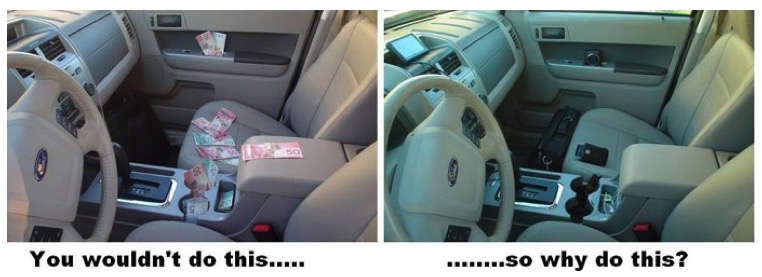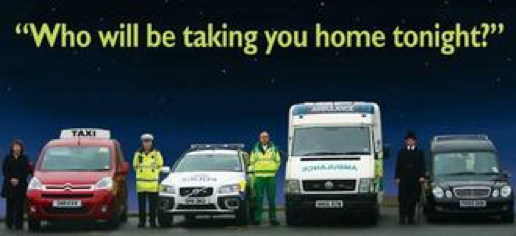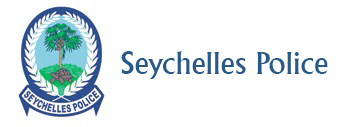Be Alert
TIPS TO AVOID BEING A VICTIM OF CASH ROBBERIES
INDIVIDUALS
- Carry as little cash as possible
- Consider the convenience of paying your accounts electronically (consult your bank to find out about other available options)
- Consider making use of cell phone banking or internet transfers or ATMs to do your banking
BUSINESSES
- Alternate the days and times on which you deposit cash
- Never make your bank visits public, even to people close to you
- Do not openly display the money you are depositing while you are standing in the bank queue
- Avoid carrying money bags, briefcases or openly displaying your deposit receipt book
- Refrain from giving wages to your contract or casual labourers in full view of the public rather make use of wage accounts that can be provided by your bank
- Refrain from driving to the bank in your company branded vehicle on a typical ‘pay day’
- Consider arranging for electronic transfers of wages to your contract or casual labourers’ personal bank accounts
- If necessary, use an armed escort to the bank.
For community policing to be successful, it is important for members of the community to realise and accept that they also have a social and moral obligation to assist and support the Police in the fight against crime, and other forms of social disorder. With the support and involvement of the community, the police will be in a position to meet the safety and security needs of the country.
The community needs to be:
- Identifying crime hot spots and informing the police about problems
- Reporting any information on wanted suspects
- Supporting the police in crime prevention initiatives
- Providing possible solutions or alternatives to constantly strengthen partnerships and improve service delivery.
Community participation and support in the fight against crime, can save lives.
Cybercrime is a fast-growing area of crime. More and more criminals are exploiting the speed, convenience and anonymity of the Internet to commit a diverse range of criminal activities that know no borders, either physical or virtual.
Top 10 cybercrime prevention tips
- Use strong passwords –Use different user ID/password combinations for different accounts and avoid writing them down. Make the passwords more complicated by combining letters, numbers, special characters (a minimum of 10 characters in total) and change them regularly.
- Secure your computer
- Activate your firewall
Firewalls are the first line of cyber defence. They block connections to unknown or bogus sites and will keep out a number of types of viruses and hackers. - Use anti-virus/malware software
Prevent viruses from infecting your computer by installing and regularly updating anti-virus software. - Block spyware attacks
Prevent spyware from infiltrating your computer by installing and updating anti-spyware software.
- Activate your firewall
- Be social media savvy – Make sure your social networking profiles, for example, Facebook, Twitter, YouTube and MSN, among other social networks, are set to private. Check your security settings. Be careful what information you post online. Once it is on the Internet, it is there forever!
- Secure your mobile devices – Be aware that your mobile device is vulnerable to viruses and hackers. Download applications from trusted sources.
- Install the latest operating system updates –Keep your applications and operating system, for example Windows, Mac, and Linux, up to date with the latest system updates. Turn on automatic updates to prevent potential attacks on older software.
- Protect your data –Use encryption for your most sensitive files, such as tax returns or financial records, back up all your important data regularly and store it in another location.
- Secure your wireless network – Wi-Fi (wireless) networks at home are vulnerable to intrusion if they are not secured properly. Review and modify default settings. Public Wi-Fi, also known as ‘hotspots’, is also vulnerable. Avoid performing financial or corporate transactions on these networks.
- Protect your e-identity – Be cautious when giving out personal information, such as your name, address, phone number or financial information on the Internet. Make sure that websites are secure, for example, when making online purchases, or that you have enabled privacy settings, for example, when accessing/using social networking sites.
- Avoid being scammed – Always think before you click on a link or file of unknown origin. Do not feel pressured by any emails. Check the source of the message. When in doubt, verify the source. Never reply to emails that ask you to verify your information or confirm your user ID or password.
- Call the right person for help –Do not panic! If you are a victim, if you encounter illegal Internet content, for example, child exploitation, or if you suspect a computer crime, identity theft or a commercial scam, report this at your local police station. If you need help with maintenance or software installation on your computer, contact your service provider or a certified computer technician.
The community needs to be:
- Identifying crime hot spots and informing the police about problems
- Reporting any information on wanted suspects
- Supporting the police in crime prevention initiatives
- Providing possible solutions or alternatives to constantly strengthen partnerships and improve service delivery.
Community participation and support in the fight against crime, can save lives.
Be crime conscious - be aware of crime opportunities at all times!
- Make sure your home is secure. Be sure that you know all the emergency numbers or have them displayed in an accessible area.
- Always let someone know where you are going and how long you will be gone. But think twice before advertising your impending absence on social media. Criminals also have access to Facebook and Twitter.
Avoid displaying valuables where criminals can see them.
How to protect yourself from fraud and scams:
The simple tips below will help you protect yourself and your family from scams. Scams can cost people a lot of money and cause a great deal of distress. By following these simple tips, you can protect yourself against scams.
Fraud Scams are methods of deceitfully obtaining personal information such as passwords, identity numbers and credit card details by calling, sending emails or cell phone messages that look like they come from trusted sources, such as banks or legitimate companies.
What you should do to prevent falling victim to scams and fraud:
- Never respond to emails or cell phone messages appearing to be from your bank, which request your personal details. Remember that no bank will ever ask you to confirm or update your account details by email.
- Never provide your online ID, password or PIN to anyone and never write them down or share them.
- Do not save your Internet banking password on your desktop.
- Do not leave your computer unattended after you have entered your Internet banking password.
- Always log off or sign off at the end of a session.
- Avoid doing Internet banking in public areas such as Internet cafés, or on any computer that can be accessed by people you do not know.
- If it looks too good to be true, it usually is.
NEVER send money or give credit card or online account details to anyone you do not know and trust.
Fences/Walls
A high fence around the house with lockable gates, is much safer than a high wall due to the advantage of the improved visibility it provides.
The primary aim of the fence is to make access/intrusion difficult and to allow dogs to move freely around the house.
Security gates with sturdy locks in front of each outer door as well as burglar proofing covering all windows, are recommended.
The following devices prevent easy access:
- Window bars
- Security doors
- Security gates
- Razor wire
- Additional locking devices on doors
- Strengthening of doors
Alarm Systems
An alarm system, preferably connected to an armed response company, can act as an effective deterrent.
An alarm must also have the capability to warn the occupants of any intrusion into the house.
Examples of alarm systems:
- Mechanical and/or electrical (purchased types)
- Gravel on window pains, pathways or around the home
- Obstacles that can make a noise when moved
- Biological Systems:
- Dogs
Safety Precautions
Ensure that all doors are locked at all times, and that windows are closed when you are not at home. If you leave your residence, inform your family/ neighbours of your intended destination and time you expect to return.
Ensure that tools such as axes, spades, picks, ladders, etc that can be used in an attack, are locked away when you do not use them. Vary your daily routine. Always keep a torch nearby at night and when you use it. If you are unsure about the security status of your home after returning from work/a visit, eg your dogs do not come to the gate, do not enter your home.
Contact your neighbour to assist you in securing your home.
Report suspicious behaviour and information to the Police.
Clear the areas around the gates of bushes and other hiding places.
Ensure that you have a good relationship with your neighbours so that you will be in a good position to support and help each other.
Access and Key Control
- Do not allow strangers on your premises or in your house without having properly identifying the person, especially at night.
- Keys to the safe must be kept on the person.
- Never hide any keys in traditional places, such as in pot plants or under doormats.
- Change locks when keys are lost.
- Remove keys from doors when leaving.
Communication
There should be two systems for alternative back up:
- Telephone
- Cellular phone
Have the telephone installed where it is easily accessible from anywhere in the house.
Inform your children not to give an indication that adult supervision is not available when they answer the phone.
Crime Prevention : Safety Tips Safety Awareness in a Vehicle
- Ensure that your vehicle is in a good condition when you plan to go on a journey.
- Ensure that the fuel tank of your vehicle always has sufficient fuel.
- Always lock your vehicles doors and keep the windows closed when not in use.
- Do not leave your vehicle unlocked, even if you think you will be away for only a minute.
- Park your vehicle in places that are well lit.
- Do not give strangers a lift.
Safety Awareness when Parking/Driving your Vehicle
- Make sure that all the doors and windows are properly locked when you park your car.
- Valuable items like a laptop and camera should be put in the boot of your car.
- Lock your valuables in the cars boot before departure.
- At night, park in well-lit areas.
- If in doubt about the safety of an area, phone a police station for advice.
- Do not leave your goods/valuable items visible in the car.
- Do not leave your handbag/briefcase visible in the car.
- Do not leave your keys in the ignition.
- Always lock the doors and close the windows when getting out of the car.
- Try to fit an alarm and/or anti-theft device in your car.
- Have your keys ready in your hand as you approach your car, especially if they are difficult to find in your handbag.

Drowning is an ever-present risk.
Below are the water safety tips to be followed:
- Before entering the sea, swimmers must take time to watch the waves and must avoid places where there is a strong backwash, obvious rip currents or a danger of being washed onto the rocks.
- If you experience a strong current, get out of the sea, or at least do not go in deep.
- Never swim while you are intoxicated. Alcohol impairs judgement and unnecessary risks are taken. An intoxicated swimmer will tire more easily, increasing the chance of an accident or drowning.
- Look out for warning signs and flags – a red flag means it is dangerous to swim.
Avoid swimming immediately after a big meal, as there is a danger of having cramps.
The Seychelles Police is committed to reducing this crime, particularly over weekends and festive periods. No one is trying to stop you from having a good time - just be responsible about doing it!
What will happen if you are caught over the limit?
The Seychelles Police are more frequently conducting road blocks and manning other checkpoints to discourage people from drinking and driving. If you are stopped at such a roadblock, and if it is determined that you have consumed more than the legal limit (35 ug/ml) of alcohol that you may legally consume while driving, you will be arrested and charged with Driving Under the Influence of alcohol.

- While buying excursions ensure that you are dealing with licensed operators.
- Do not be compelled to buy anything from anyone.
- Be sure you have a means of contact with you anywhere you go.
At the beach
- It is advisable not to leave your belongings or personal properties unattended on the beach while you are in the water.
At the Hotel, Guesthouse, other accommodation
- Report any suspicious, unattended luggage or parcels to the personnel at reception.
- Never leave your luggage unattended unless it is locked away in your room.
- Store valuables in the safety deposit box.
- Keep your room locked.
- If someone knocks, check who it is before opening the door. Contact reception if you have any reason for concern.
- Hand your keys in whenever you leave.
- Inform your friends or hotel personnel where you are going.
In your vehicle
- Do not leave your valuables exposed in unattended vehicle even if it is locked.
- Lock valuable items in the boot (trunk) before your departure.
- At night, park in well-lit areas.
- Never pick up strangers or hitchhikers.
- If in doubt about the safety of an area, phone a police station for advice and help.
On hiking trails
- In the interest of personal safety and having assistance in the case of a physical or medical emergency, it is advisable to explore trails in groups.
- Steer away from isolated areas unless accompanied by a guide.
Call 133
For Crime Stopper and Service Complaints
Call 999
When you are in any emergency situations.
